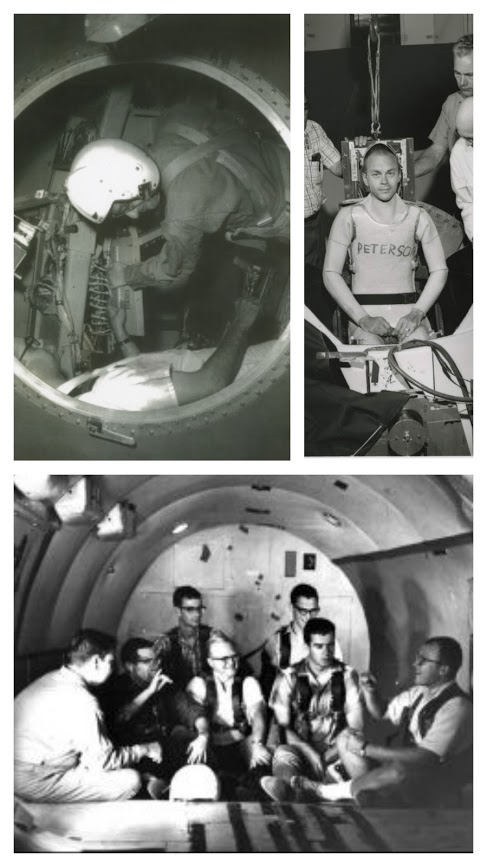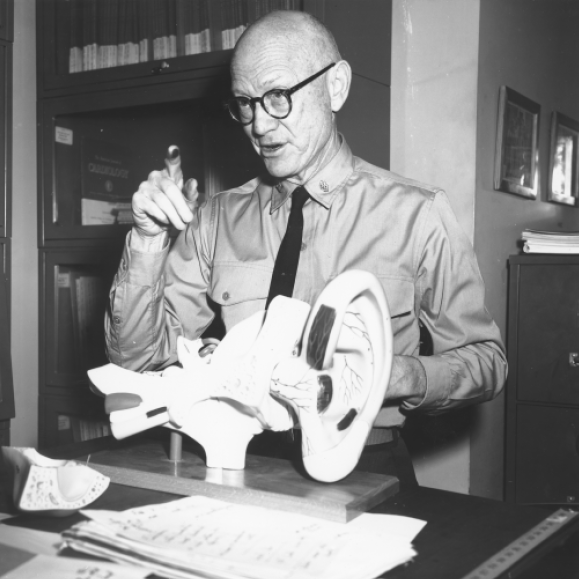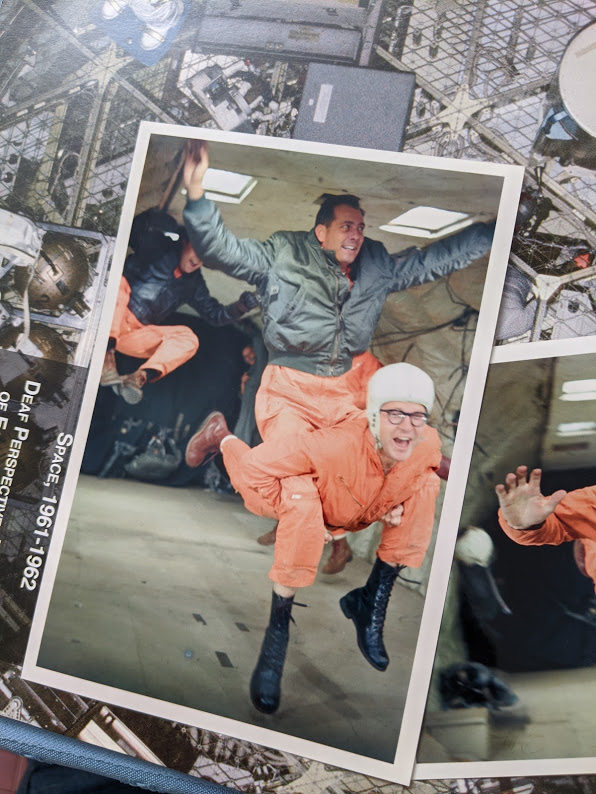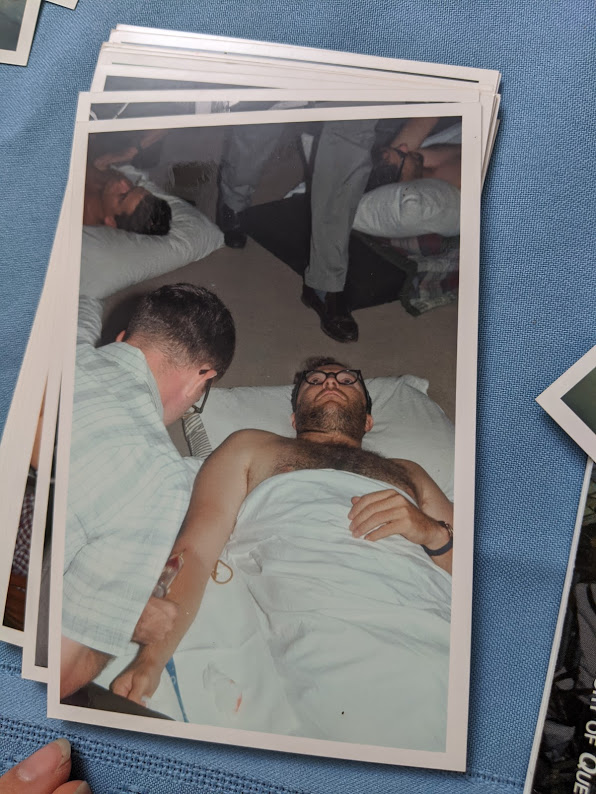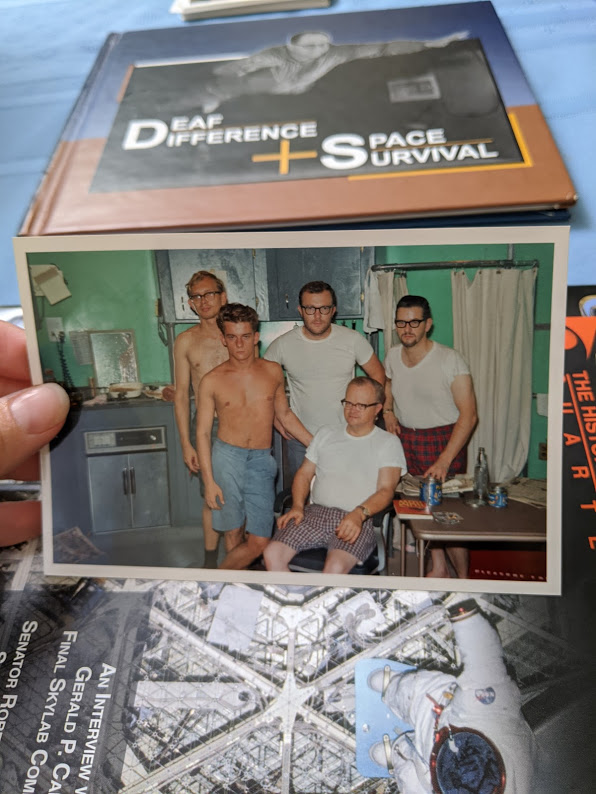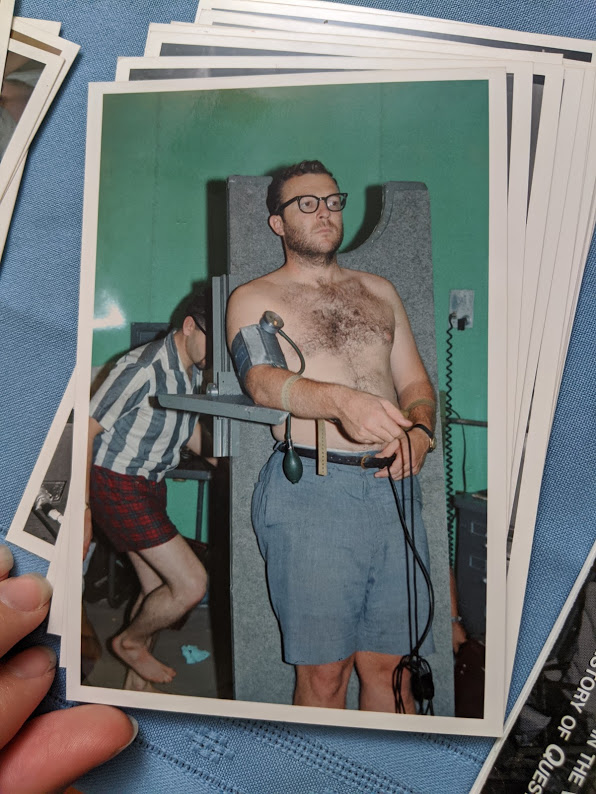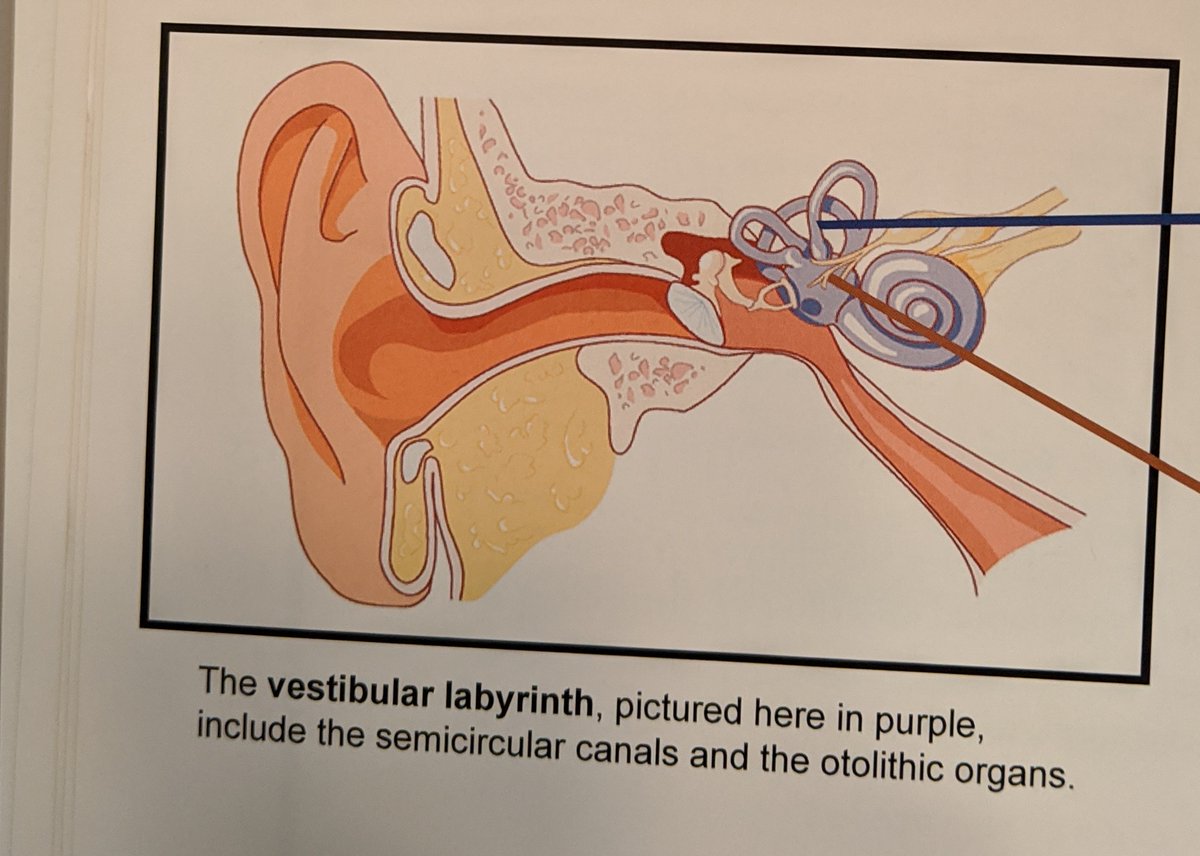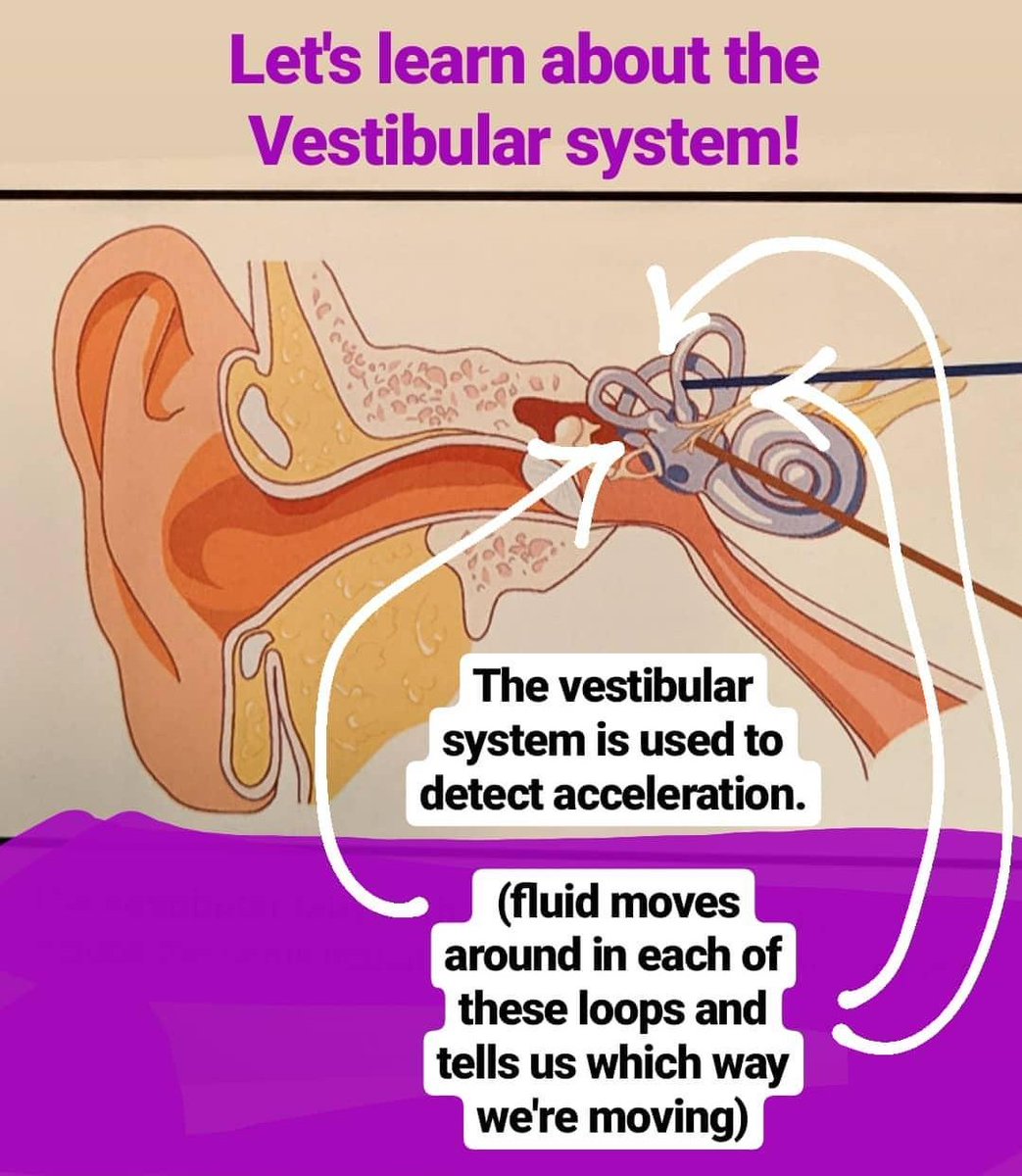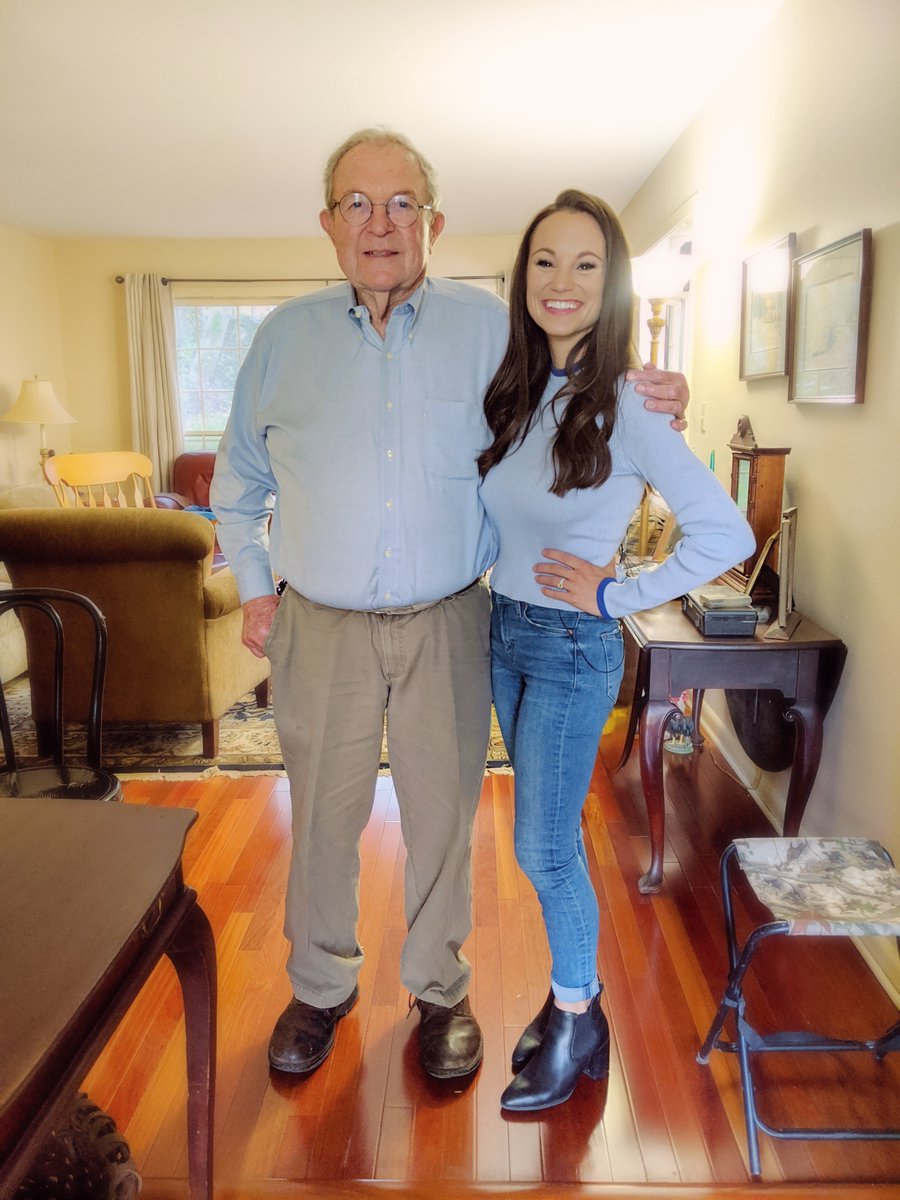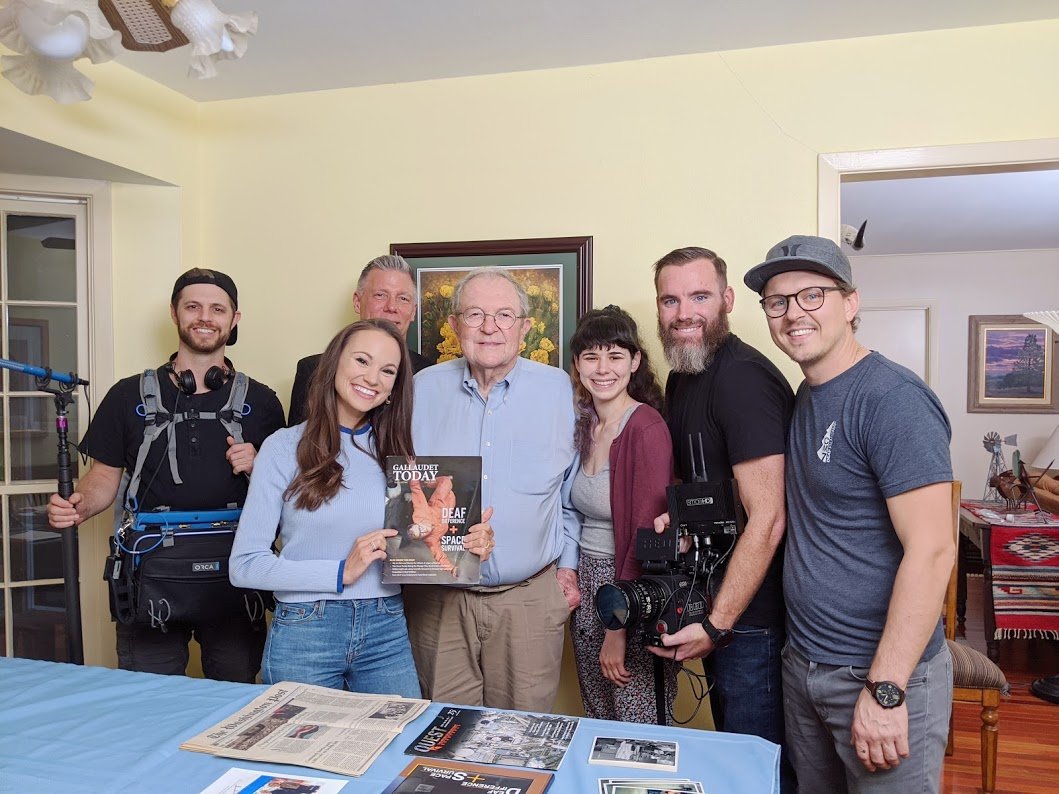In the 1960's 11 deaf men helped NASA get to the moon. They were known as the Gallaudet Eleven.
We were able to interview one of their remaining members, David Myers, for my show Xploration Outer Space. A thread.
We were able to interview one of their remaining members, David Myers, for my show Xploration Outer Space. A thread.
In the 1960's 11 men were recruited from Gallaudet College (now @GallaudetU) for a series of NASA experiments to better understand how spaceflight would affect astronauts. These experiments were done over the course of a decade.
The experiments were led by Dr. Graybiel, a cardiologist who had studied how flight affected pilots, and continued to work for NASA to study how spaceflight might affect astronauts
(remember, this was during a time when we knew NOTHING about how space would affect humans!)
(remember, this was during a time when we knew NOTHING about how space would affect humans!)
In particular, NASA was worried about motion sickness. As David explained, "You don't want your pilot sick when he's piloting a spaceship."
So they wanted to understand what caused people to experience motion sickness.
So they wanted to understand what caused people to experience motion sickness.
Why recruit deaf people for these experiments?
Well, in early tests, deaf people fared far better than hearing subjects in spaceflight experiments designed to make the person dizzy or sick. They seemed immune to motion sickness.
Graybiel wanted to learn more about why that was
Well, in early tests, deaf people fared far better than hearing subjects in spaceflight experiments designed to make the person dizzy or sick. They seemed immune to motion sickness.
Graybiel wanted to learn more about why that was
At the time, the theories around why motion sickness occurred focused on the stomach.
But - spoiler alert - these men were immune to motion sickness for a different reason, unrelated to the stomach. (more on this in a second)
But - spoiler alert - these men were immune to motion sickness for a different reason, unrelated to the stomach. (more on this in a second)
So the Gallaudet men, acted as sort of a control group for NASA. Their results were compared to the results of the hearing group.
They flew on the Vomit Comet, they spent 17 days in a 20ft diameter room that spun at 10rpm, they spent days on a boat in the choppy North Atlantic.
They flew on the Vomit Comet, they spent 17 days in a 20ft diameter room that spun at 10rpm, they spent days on a boat in the choppy North Atlantic.
In each of these tests, the deaf subjects felt fine while their hearing counterparts became sick.
In fact, they had to cut the boat experiment short because the (hearing) analysts were so sick, they couldn't conduct their tests on the Gallaudet men.
In fact, they had to cut the boat experiment short because the (hearing) analysts were so sick, they couldn't conduct their tests on the Gallaudet men.
It turns out that the reason why the Gallaudet men were immune to motion sickness had to do with the cause of their deafness. Each of these men became deaf due to spinal meningitis, which damaged their vestibular system in their ear.
The vestibular system is used to detect acceleration. Fluid moves around in each loop & tells us which way we're moving.
This is ALSO responsible for motion sickness.
You spin around, that makes the fluid spin. You stop, your eyes see that, but the fluid still spins.
This is ALSO responsible for motion sickness.
You spin around, that makes the fluid spin. You stop, your eyes see that, but the fluid still spins.
When these two inputs don't match = MOTION SICKNESS.
So, because this system was damaged in the Gallaudet men, they were immune to motion sickness.
So, because this system was damaged in the Gallaudet men, they were immune to motion sickness.
What these experiments showed is that motion sickness does not originate in the stomach, but rather they lie in the labyrinths of the ear. Dr. Graybiel used this research to help develop early drugs to prevent motion sickness in hearing subjects.
As I interviewed David, I asked him if it bothered him that even though he was going through many of the same experiments that astronauts were going through (and faring much better than his hearing counterparts), that he wasn't eligible to become an astronaut.
He said that he understood (he wasn't a pilot, and had no interest in the space program prior to being recruited for these experiments), but would still love to go into space. And with a wink and a smile, he said he will be waiting for the call from NASA.
The Gallaudet 11 reminds us that even though astronauts are the ones we spotlight when it comes to space exploration, many of our brave explorers - who help push the boundaries of exploration in the solar system - remain firmly on the ground.
To learn more about the incredible story of the Gallaudet 11 - check out the exhibit that opened about their contributions in Washington, DC.
AND watch #XplorationOuterSpace this spring! https://www.gallaudet.edu/drs-john-s-and-betty-j-schuchman-deaf-documentary-center/deaf-difference-space-survival-opening
AND watch #XplorationOuterSpace this spring! https://www.gallaudet.edu/drs-john-s-and-betty-j-schuchman-deaf-documentary-center/deaf-difference-space-survival-opening
And a huge thanks to our crew (a mix of hearing and deaf individuals) as well as our 2 ASL/English interpreters who helped facilitate communication and made this shoot possible.
This will be featured in a Season 6 episode of #XplorationOuterSpace that premieres in the spring.
This will be featured in a Season 6 episode of #XplorationOuterSpace that premieres in the spring.

 Read on Twitter
Read on Twitter